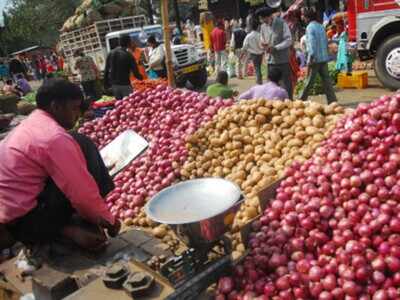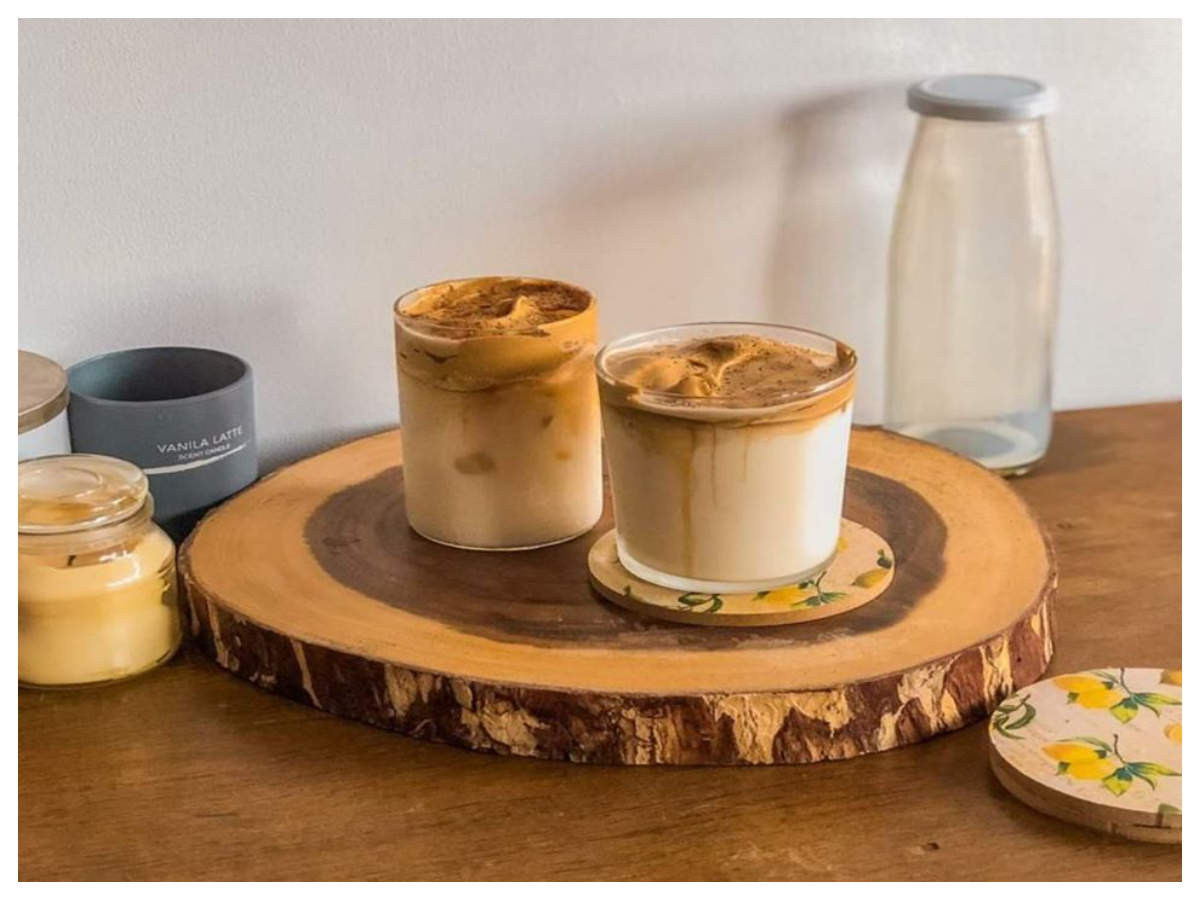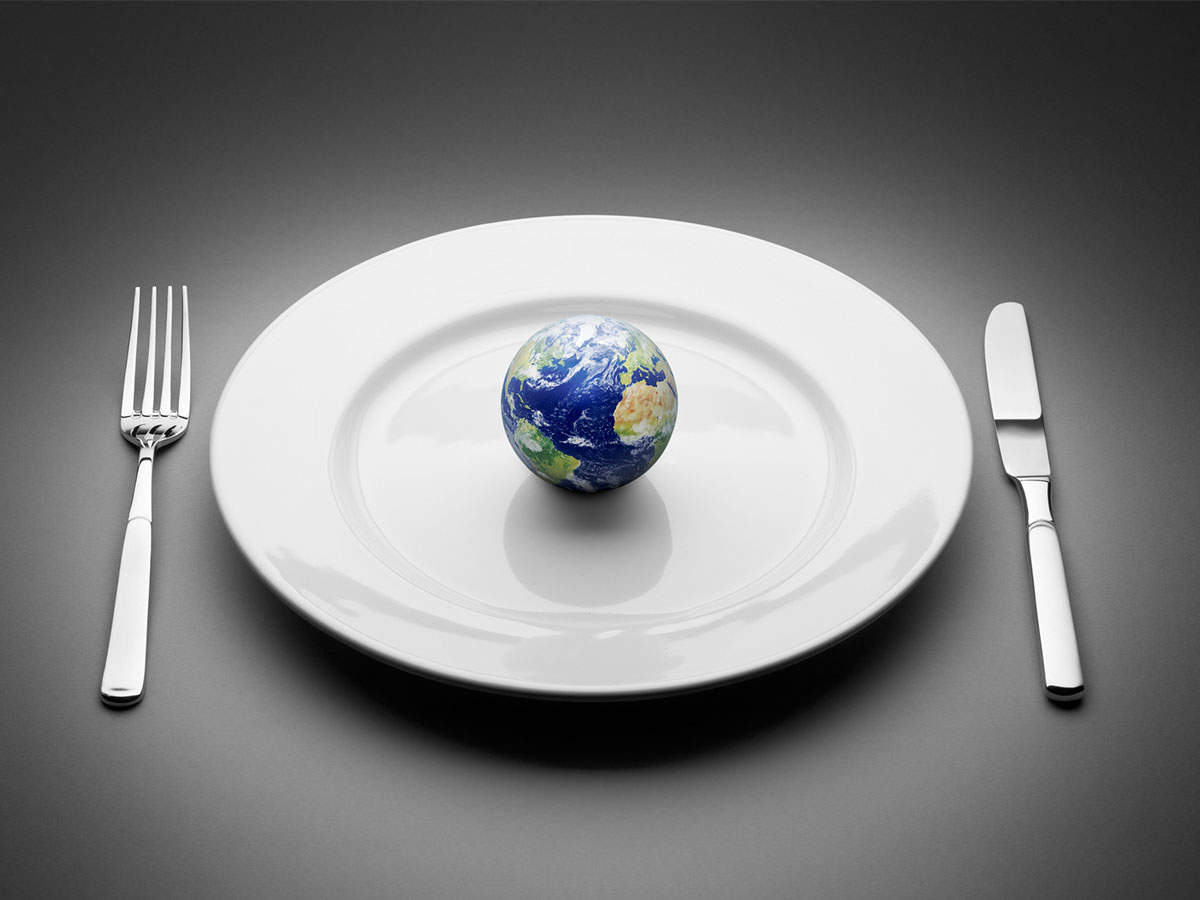
NEW DELHI: Retail inflation based on consumer price index (CPI) fell to four-month low of 5.91 per cent in March from 6.58 per cent in February, data released by government on Monday showed.
In terms of year-on-year basis, the inflation number stood at 2.86 per cent in March 2019. The inflation figure has been on decline since last month. The previous low was 5.54 per cent in November 2019.
The inflation in the food basket was 8.76 per cent in March 2020, lower from 10.81 per cent in the previous month, as per the CPI data released by the National Statistical Office (NSO).
The fall in retail inflation was witnessed mainly due to easing prices of kitchen essentials like vegetables, eggs and meat as already slowing demand likely plummeted due to the 21-day nationwide lockdown to curb the spread of the coronavirus. However, it remained above the Reserve Bank of India's (RBI's) target of 4 per cent.
As per the data, inflation in eggs was 5.56 per cent during March as compared to 7.28 per cent in the previous month.
The rate of price rise in vegetables was 18.63 per cent as against 31.61 per cent in February. The rate was also slower in fruit prices as well as pulses and related products.
However, the inflation in milk and products was slightly higher in March over February.
The RBI -- which mainly factors in the retail inflation while arriving at its bi-monthly monetary policy -- in an emergency move late last month cut its key lending rate by a bigger-than-hoped 75 basis points (bps) and announced several measures to inject rupee and dollar liquidity in the domestic markets.
However, the central bank refrained from making any projections for growth and inflation saying the performance of these two key macroeconomic parameters in the days ahead would depend upon the intensity, spread and duration of coronavirus.
The impact of COVID-19 on inflation is ambiguous relative to that on growth, with a possible decline in prices of food items being offset by potential cost-push increases in prices of nonfood items due to supply disruptions, it said.
The MPC (Monetary Policy Committee) has been tasked by the government to tame retail inflation based on CPI at 4 per cent (+,-2 per cent).
For 2021-22, assuming a normal monsoon and no major exogenous or policy shocks, structural model estimates indicate that inflation could move in a range of 3.6-3.8 per cent, the MPC had said.
Keeping in view the preventive measures taken by the NSO and announcement of nationwide lockdown by the government to check spread of COVID-19 pandemic, the field work for price collection was suspended with effect from March 19, 2020 and about 66 per cent of price quotations were received, the ministry said.
"For assessing the price behaviour of remaining price quotations, NSO follows well established and internationally accepted methodology and practices," it said said while releasing the CPI data.
The overall impact of missing price data on estimates of general CPI at national and state level are within acceptable limits, it added.
(With agency inputs)
In terms of year-on-year basis, the inflation number stood at 2.86 per cent in March 2019. The inflation figure has been on decline since last month. The previous low was 5.54 per cent in November 2019.
The inflation in the food basket was 8.76 per cent in March 2020, lower from 10.81 per cent in the previous month, as per the CPI data released by the National Statistical Office (NSO).
The fall in retail inflation was witnessed mainly due to easing prices of kitchen essentials like vegetables, eggs and meat as already slowing demand likely plummeted due to the 21-day nationwide lockdown to curb the spread of the coronavirus. However, it remained above the Reserve Bank of India's (RBI's) target of 4 per cent.
As per the data, inflation in eggs was 5.56 per cent during March as compared to 7.28 per cent in the previous month.
The rate of price rise in vegetables was 18.63 per cent as against 31.61 per cent in February. The rate was also slower in fruit prices as well as pulses and related products.
However, the inflation in milk and products was slightly higher in March over February.
The RBI -- which mainly factors in the retail inflation while arriving at its bi-monthly monetary policy -- in an emergency move late last month cut its key lending rate by a bigger-than-hoped 75 basis points (bps) and announced several measures to inject rupee and dollar liquidity in the domestic markets.
However, the central bank refrained from making any projections for growth and inflation saying the performance of these two key macroeconomic parameters in the days ahead would depend upon the intensity, spread and duration of coronavirus.
The impact of COVID-19 on inflation is ambiguous relative to that on growth, with a possible decline in prices of food items being offset by potential cost-push increases in prices of nonfood items due to supply disruptions, it said.
The MPC (Monetary Policy Committee) has been tasked by the government to tame retail inflation based on CPI at 4 per cent (+,-2 per cent).
For 2021-22, assuming a normal monsoon and no major exogenous or policy shocks, structural model estimates indicate that inflation could move in a range of 3.6-3.8 per cent, the MPC had said.
Keeping in view the preventive measures taken by the NSO and announcement of nationwide lockdown by the government to check spread of COVID-19 pandemic, the field work for price collection was suspended with effect from March 19, 2020 and about 66 per cent of price quotations were received, the ministry said.
"For assessing the price behaviour of remaining price quotations, NSO follows well established and internationally accepted methodology and practices," it said said while releasing the CPI data.
The overall impact of missing price data on estimates of general CPI at national and state level are within acceptable limits, it added.
(With agency inputs)
Download
The Times of India News App for Latest Business News
Subscribe
Start Your Daily Mornings with Times of India Newspaper! Order Now
more from times of india business
Quick Links
ELSS Mutual Funds BenefitsIncome Tax Refund statusWhat is AssochamITR Filing Last DateHome Loan EMI TipsHome Loan Repayment TipsPradhan Mantri Awas YojanaTop UP Loan FeaturesIncrease Home Loan EligibilityHome Loan on PFTax Saving Fixed DepositLink Aadhaar with ITRAtal Pension YojanaNita AmbaniIndian EconomyRBIAadhaar CardSBIReliance CommunicationsMukesh AmbaniIndian Bank Ifsc codeIDBI Ifsc codeIndusind ifsc codeYes Bank Ifsc CodeVijay Bank Ifsc codeSyndicate bank Ifsc CodePNB Ifsc codeOBC Ifsc codeKarur vysya bank ifscIOB Ifsc codeICICI Ifsc codeHDFC Bank ifsc codeCanara Bank Ifsc codeBank of baroda ifscBank of America IFSC CodeBOM IFSC CodeAndhra Bank IFSC CodeAxis Bank Ifsc CodeSBI IFSC CodeGST
Get the app








